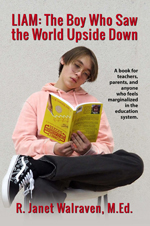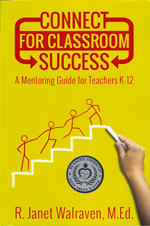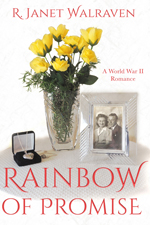Mary Lou Dobbs is an author, speaker, and lifestyle coach who seeks to inspire others to excel and thrive as they age. Her third nonfiction release, Badass Old White Woman: How to Flip the Script on Aging (January 2024), has been called “a rally cry for all of us who refuse to let age limit our dreams and aspirations.” Look for Mary on her website at MaryLouDobbs.net, on Facebook and Instagram, and on her Amazon author page.
 What do you hope readers will take away from Badass Old White Woman?
What do you hope readers will take away from Badass Old White Woman?
I hope readers will be inspired to challenge societal norms about aging and embrace their own unique paths to personal fulfillment. My book encourages readers to break free from limiting beliefs — these are any beliefs that carry emotional weight and cause misalignment. I write about how women can embrace adventure and live authentically, regardless of age or background.
What unique challenges did this work pose for you?
One unique challenge in writing Badass Old White Woman was balancing personal anecdotes with universal themes that resonate with a diverse audience. Additionally, addressing sensitive topics related to aging and societal expectations required a delicate approach to ensure authenticity and relatability. I also had to make a mental shift from hurt feelings to humor after being called “an old White Woman.” This inspired me to sit down and write. Women are tired of the underwhelming expectations and negative stereotypes that threaten our value and inner wisdom.
What was the most rewarding aspect of writing the book?
The most rewarding aspect of writing the book has been hearing from readers who found inspiration and empowerment in the stories and advice shared in the book. Knowing that the book has made a positive impact on others’ lives makes the writing process incredibly fulfilling. I didn’t wake up and decide to become a superhero to women, but it appears I have.
What makes your newest release unique in the self-help market?
Badass Old White Woman stands out in the self-help and inspirational market for its candid and unconventional alternative life-changing therapies to topics related to aging, personal growth, and inner resilience. The book blends humor, personal anecdotes, and practical advice to create a relatable and empowering guide for women of all ages.
What are you most happy with, and what do you struggle with most, in your writing? And, especially regarding this book?
I’m most happy with the authenticity and relatability of women’s stories shared in the book. However, I sometimes struggle with finding the right balance between storytelling and delivering nontraditional healing modalities like Thought Field Therapy (TFT) and The Emotion Code to a wide-reading audience. Sharing emotions are the key to robustness in connecting with yourself and others. I give actionable advice in my writing, especially when addressing complex topics like aging and personal transformation.
You’ve written two other books in this genre: Repotting Yourself: Financial – Emotional – Spiritual Flow and The Cinderella Salesman: An Inspiring Success Story for Every Woman Who Seeks a Fascinating Career, endorsed by Og Mandino. How would you compare Badass Old White Woman to the previous books?
While Repotting Yourself and The Cinderella Salesman focus on specific aspects of personal growth and career development, Badass Old White Woman takes a more holistic approach to empowerment and resilience. It addresses broader themes related to aging, self-discovery, and embracing life’s challenges with courage and humor.
When you tackle a nonfiction project, do you think of it as storytelling? This book certainly seems to be telling a story of challenge and triumph.
Absolutely, storytelling is a central aspect of my approach to nonfiction writing. In Badass Old White Woman, I use storytelling to convey universal truths and inspire readers to embrace their own journeys of challenge and triumph. By sharing personal anecdotes and experiences, I aim to create a narrative that resonates with readers on a deeper level. I believe only after gaining an emotional vibrational balance will readers thrive in later years,
What was the expected, or unexpected, result of writing Badass Old White Woman?
I have emerged as a guiding voice, encouraging women to embark on an unapologetic, life-changing journey filled with renewed purpose and exhilarating adventures.
What is the best compliment you’ve received as an author?
One reader said, “Your book ignited a profound transformation within me, propelling me beyond the confines of my fears and the stagnant patterns that once confined me to society’s rigid and uninspiring perception of myself.”
Badass Old White Woman was just released in January 2024. Do you already have another writing project in mind — or are you working on one now?
Engaging in the marketing process demands a significant investment of my time. From securing speaking engagements to crafting articles that enhance visibility, and actively networking, these efforts collectively form the secret sauce for effectively selling books.
Is there anything else you’d like readers to know?
In my book, I include the following quote: “When we rise above our emotional triggers, we possess the capability to neutralize them with precision, akin to a heat-seeking missile. Through this process, we access an invisible highway to our inner selves, where a cellular memory of full engagement and vibrant aliveness resides.” ~ Mary Lou Dobbs, Thought Field Therapy Lifestyle Coach.
 D.E. Williams is the author of the award-winning Chesan Legacy Series: Child of Chaos and Chaos Unleashed. She lives in Albuquerque, New Mexico. To find out more about Dollie and her writing, visit her website at DollieWilliams.com.
D.E. Williams is the author of the award-winning Chesan Legacy Series: Child of Chaos and Chaos Unleashed. She lives in Albuquerque, New Mexico. To find out more about Dollie and her writing, visit her website at DollieWilliams.com.




 Su Lierz writes dark fiction, short story fiction, and personal essays. Her short story “Twelve Days in April,” written under the pen name Laney Payne, appeared in the 2018 SouthWest Writers Sage Anthology. Su was a finalist in the 2017 and 2018 Albuquerque Museum Authors Festival Writing Contest. She lives in Corrales, New Mexico, with her husband Dennis.
Su Lierz writes dark fiction, short story fiction, and personal essays. Her short story “Twelve Days in April,” written under the pen name Laney Payne, appeared in the 2018 SouthWest Writers Sage Anthology. Su was a finalist in the 2017 and 2018 Albuquerque Museum Authors Festival Writing Contest. She lives in Corrales, New Mexico, with her husband Dennis.